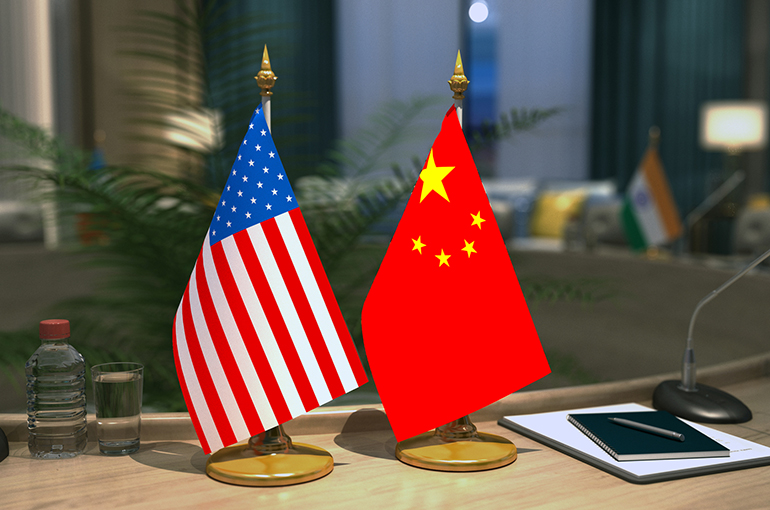 Investor Confidence in Chinese Assets to Get Boost From China-US Trade Breakthrough, Analysts Say
Investor Confidence in Chinese Assets to Get Boost From China-US Trade Breakthrough, Analysts Say(Yicai) May 13 -- The China-US economic and trade talks in Geneva concluded with a joint statement that far surpassed expectations, according to analysts, who said the outcome will strengthen domestic and international investor confidence in Chinese assets.
The confidence of Chinese and international investors in Chinese assets is expected to increase, as the progress in China-US relationships was key to recent improvements in the macroeconomic landscape, Song Yu, Chief China Economist of BlackRock, told Yicai.
China and the US released a joint statement yesterday, announcing that they agreed to lower the import tariffs on each other’s goods for 90 days, committing to take action by tomorrow. The US will cut its tariffs on Chinese imports to 30 percent from 145 percent, and China will trim its tariffs on US goods to 10 percent from 125 percent.
Goldman Sachs maintains its overweight stance on Chinese assets, as the MSCI China Index has nearly recovered the 13 percent loss triggered by the US ‘reciprocal tariffs,’ having gained 12 percent year-to-date. Chinese financial assets have shown resilience, with the Chinese yuan appreciating 1.7 percent against the US dollar over the past month.
The talks achieved results far greater than anticipated, and the commitment to continuing dialogue is a positive signal, Song said.
The US lead negotiator, Treasury Secretary Scott Bessent, adopted a pragmatic approach to resolving bilateral disputes and ruled out decoupling, Song noted, adding that this will influence market perceptions of global trade tensions.
While China can source some US products, the US has fewer options to replace Chinese goods, which increased pressure on the US over the need for negotiations, Qiao Yide, president and secretary-general of the Shanghai Development Research Foundation and head of the Excellence Academy of Development Research, told Yicai.
Moreover, the contradictions in former US President Donald Trump’s tax cuts and tariff policies have made the country's objectives unattainable, prompting tariff adjustments, Qiao explained.
Tariff reductions are a boon for Chinese equities, but given the complexity of bilateral relationships, it remains uncertain whether these resolutions will last, Wang Ying, chief equity strategist for China at Morgan Stanley, told Yicai. The US delisting of American Depository Shares, investment restrictions, and technology export bans are still of great concern, she added.
The trade deal is a major breakthrough, but continued economic policy support is needed to sustain the positive momentum seen earlier this year, according to Song.
Regarding future negotiations and market trends, Raymond Yeung, chief economist for China at Australia and New Zealand Banking Group, said that further China-US talks to ease tensions are expected within a month. Both sides will focus on establishing a trade framework, with a final agreement likely to be reached before the US midterm elections next year, he noted.
Editor: Futura Costaglione